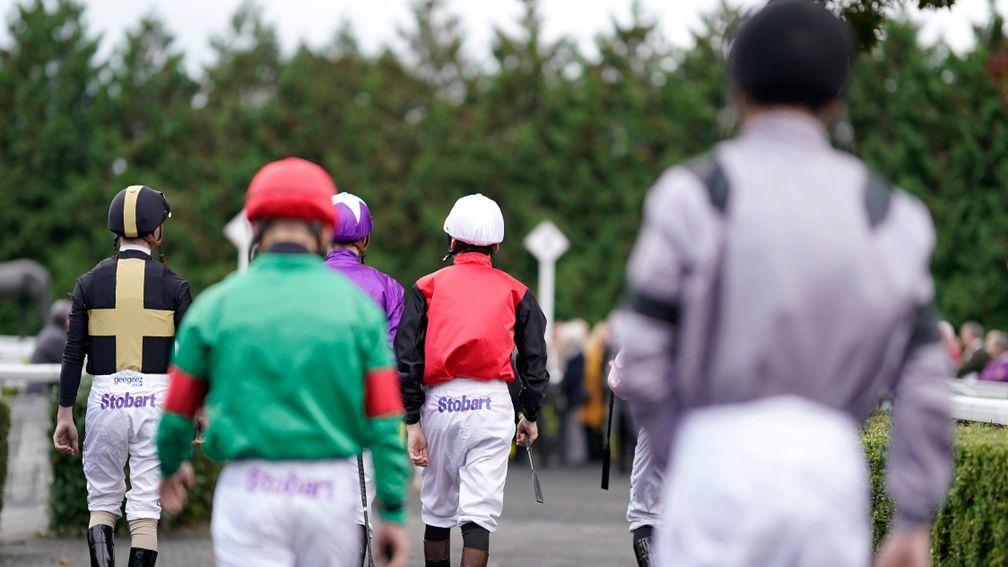- More
Jockeys facing prospect of longer stand-down times for head injuries

Recommended mandatory stand-down times for concussion in sport around the world, including horseracing, are likely to be increased from the current seven days, according to the BHA's former chief medical advisor Dr Michael Turner.
Turner, who is now medical director of the International Concussion and Head Injury Research Foundation, is part of a research group that is preparing to present its findings at a meeting organised by the International Olympic Committee in Paris in October next year.
Speaking at the International Conference for the Health, Safety & Welfare of Jockeys on Thursday, Turner addressed the topic of recovery times and said: "Recent evidence from Australia is that connectivity is important, and significant differences were found after four weeks.
"Over the years we've driven down the stand-down period to seven days, but the new protocols will almost certainly drive that the other way."
Turner also had a warning about the consequences of sporting organisations failing continually to update their concussion protocols.
"They are probably opening themselves to litigation," he said. "I spend more time talking to lawyers than to sports medical officers these days.
"I say to sporting bodies that the rider who's in their office this week asking to be cleared to ride again will be in my office next week trying to sue the backside off them."
Turner drew attention to the recent study on Scottish football, which showed that players were twice as likely to demonstrate dementia – "the biggest killer in the UK" – than the general public in later life.

"These people don't get problems earlier, but when they get older, the risks are greater," he noted. "The same could be said for concussion in horseracing," he added.
Former jockey Kevin Ring, a director of the Australian Jockeys Association, reported that the BHA's concussion policy, which Turner devised, has been adopted in most of his country's states, with the seven-day stand-down period extended from the racecourse to track work and barrier trials.
He too had litigation in mind when he said: "I think there's a question of whether a jockey should ride again if they have three concussions in two years, because otherwise there will be a class action one of these days."
Dr Kelly Ryan, co-medical director of the Horsemen’s Health Programme at race tracks in Maryland, US, called for an international consensus of concussion protocols for jockeys.
She said: “Protocols are not the same around the world. While some jurisdictions do have a protocol, there are many that do not, or they are based on outdated recommendations.
“A consensus would provide consistency and guidance to other tracks that do not have the resources to develop such a system. It would include education, recognising injury, management, communication, removal from and return to riding, baseline testing recommendation and future research opportunities."
Read The Lowdown from 8.30am daily on racingpost.com and the Racing Post app for all the day's going updates, news and tips
Published on inNews
Last updated
- Join Racing Post Members' Club for the very best in racing journalism - including Patrick Mullins' unmissable trip to see Gordon Elliott
- Racing Post Members' Club: 50% off your first three months
- Join the same team as Ryan Moore, Harry Cobden and other top jockeys with 50% off Racing Post Members' Club
- 'It’s really exciting we can connect Wentworth's story to Stubbs' - last chance to catch master painter's homecoming
- The jumps season is getting into full swing - and now is the perfect time to join Racing Post Members' Club with 50% off
- Join Racing Post Members' Club for the very best in racing journalism - including Patrick Mullins' unmissable trip to see Gordon Elliott
- Racing Post Members' Club: 50% off your first three months
- Join the same team as Ryan Moore, Harry Cobden and other top jockeys with 50% off Racing Post Members' Club
- 'It’s really exciting we can connect Wentworth's story to Stubbs' - last chance to catch master painter's homecoming
- The jumps season is getting into full swing - and now is the perfect time to join Racing Post Members' Club with 50% off